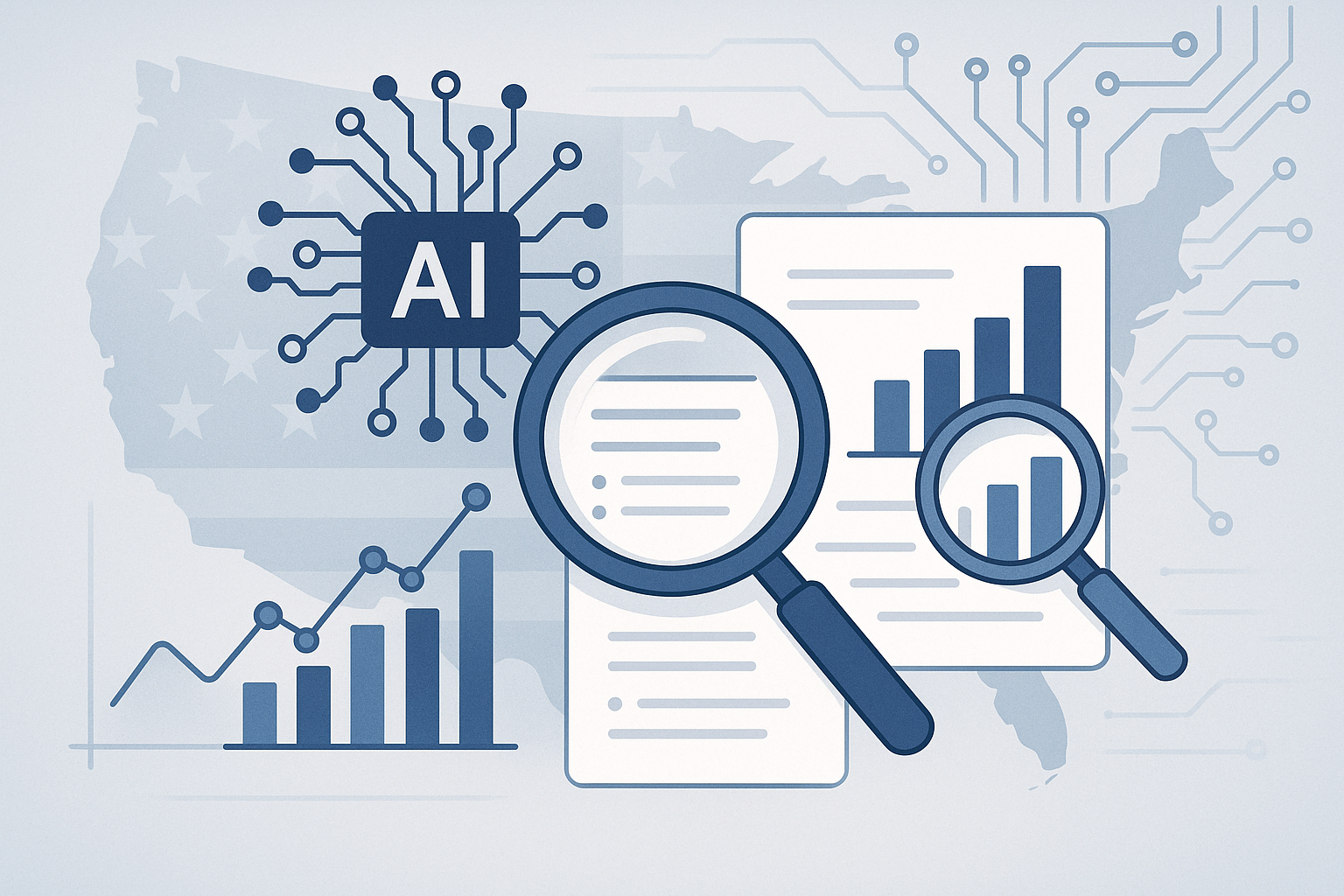
The Ultimate Guide to AI-Powered Research Tools in 2025
Artificial intelligence is transforming the way we gather, analyze, and interpret information. In 2025, AI-powered research tools have become essential for students, academics, businesses, and anyone seeking to make data-driven decisions. This guide explores the latest advancements, top tools, and best practices for leveraging AI in your research workflow.
What Are AI-Powered Research Tools?
AI-powered research tools are digital platforms or software that use artificial intelligence and machine learning algorithms to automate, enhance, or streamline the research process. These tools can:
- 📚 Search and summarize academic literature
- 🧠 Analyze large datasets
- 📝 Generate citations and bibliographies
- 🔍 Detect trends and patterns in data
- 🤖 Assist with writing, editing, and fact-checking
TIP: AI-powered research tools are not just for academics! Businesses, journalists, and students can all benefit from faster, smarter research.
Why Use AI-Powered Research Tools in 2025?
The explosion of information in the digital age makes manual research overwhelming. Here’s why AI-powered research tools are indispensable in 2025:
- ✅ Speed: Instantly scan millions of documents and extract relevant insights.
- ✅ Accuracy: Reduce human error and bias in data analysis.
- ✅ Productivity: Automate repetitive tasks like citation formatting and literature reviews.
- ✅ Comprehensiveness: Uncover hidden connections and trends across vast datasets.
- ✅ Collaboration: Share findings and work seamlessly with teams.
Top 10 AI-Powered Research Tools for 2025
Choosing the right tool can be daunting. Here’s a ranked list of the best AI-powered research tools available in the U.S. market in 2025, based on features, user reviews, and innovation.
1. Semantic Scholar AI
2. Scite Assistant
3. Elicit by Ought
4. Research Rabbit
5. Iris.ai
6. Scholarcy
7. Connected Papers
8. Genei
9. Litmaps
10. Paperpile AI
Side-by-Side Comparison Table: Top 10 AI-Powered Research Tools (2025)
| Rank | Tool Name | Key Feature | Best For | Free Version | U.S. User Rating (2025) |
|---|---|---|---|---|---|
| 1 | Semantic Scholar AI | Deep semantic search | Academics | Yes | 4.9/5 |
| 2 | Scite Assistant | Citation analysis | Researchers | Yes | 4.8/5 |
| 3 | Elicit by Ought | Automated literature review | Students, Writers | Yes | 4.7/5 |
| 4 | Research Rabbit | Visual research mapping | Collaboration | Yes | 4.7/5 |
| 5 | Iris.ai | Concept extraction | Science & Tech | Limited | 4.6/5 |
| 6 | Scholarcy | Article summarization | Quick reviews | Yes | 4.5/5 |
| 7 | Connected Papers | Paper relationship graphs | Literature mapping | Yes | 4.5/5 |
| 8 | Genei | AI note-taking & summaries | Productivity | Limited | 4.4/5 |
| 9 | Litmaps | Citation network mapping | Trend analysis | Yes | 4.3/5 |
| 10 | Paperpile AI | Reference management | Organization | Limited | 4.2/5 |
How AI-Powered Research Tools Work
AI-powered research tools use a combination of natural language processing (NLP), machine learning, and data mining. Here’s a simplified workflow:
1. User inputs a research query or uploads documents.
2. The tool scans databases, journals, or the web using AI algorithms.
3. Relevant information is extracted, summarized, and organized.
4. The user receives actionable insights, summaries, or visualizations.
TIP: Many tools integrate with popular platforms like Google Scholar, PubMed, and Microsoft Word for seamless workflow integration.
Key Features to Look for in AI-Powered Research Tools
When selecting an AI-powered research tool, consider these must-have features:
- 🔍 Semantic Search: Understands context, not just keywords.
- 📝 Automated Summarization: Condenses long articles into key points.
- 📊 Data Visualization: Maps relationships and trends.
- 📚 Citation Management: Automatically formats references.
- 🤝 Collaboration Tools: Enables team-based research.
- 🔒 Data Security: Protects sensitive information.
Use Cases: Who Benefits from AI-Powered Research Tools?
Academic Researchers
- Quickly review literature and identify research gaps.
- Generate accurate citations and bibliographies.
Students
- Summarize complex articles for assignments.
- Organize notes and references efficiently.
Businesses & Analysts
- Analyze market trends and competitor data.
- Automate report generation and data extraction.
Journalists & Writers
- Fact-check sources and summarize news.
- Discover emerging topics and story angles.
TIP: AI-powered research tools can save up to 60% of the time spent on manual research tasks, according to 2025 U.S. productivity studies.
Best Practices for Using AI-Powered Research Tools
- Verify AI Outputs: Always double-check summaries and citations for accuracy.
- Stay Updated: Use the latest versions for improved algorithms and features.
- Combine Tools: Use multiple tools for comprehensive coverage.
- Respect Privacy: Ensure compliance with data protection regulations.
Conclusion: Harnessing the Power of AI-Powered Research Tools in 2025
AI-powered research tools have revolutionized the way we approach information gathering and analysis in 2025. Whether you’re a student, academic, business analyst, or journalist, these tools offer unmatched speed, accuracy, and productivity. By leveraging features like semantic search, automated summarization, and citation management, you can focus on critical thinking and innovation rather than manual tasks.
The top 10 AI-powered research tools highlighted in this guide represent the cutting edge of technology, each catering to different needs and workflows. As AI continues to evolve, integrating these tools into your research process will not only save time but also enhance the quality and depth of your insights.
Embrace the future of research—let AI-powered tools amplify your capabilities and transform the way you discover, analyze, and share knowledge.